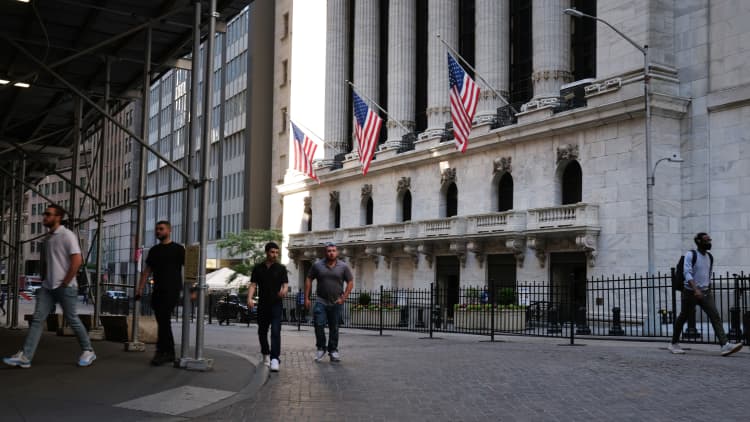The world is becoming much more accepting of rising coronavirus cases, BlackRock CEO Larry Fink believes.
The billionaire fund manager sees democracies in the age of coronavirus as torn between two directions: being a compassionate society that prioritizes people's health, versus being a pragmatic one that prioritizes the economy.
And given the relative recovery of financial markets compared to their dramatic plunge in March, Fink thinks markets may not be reflecting the extent of the current crisis.
"I think psychologically the world has changed in the last few months. The world has changed from a compassionate world to more of a pragmatic world," Fink, who heads the world's largest asset management fund overseeing more than $7 trillion in assets, told CNBC's Hadley Gamble during a virtual panel of the World Government Summit.

"Right now we are seeing rising infection rates, but ... it's very apparent to me that the world is accepting higher diseases, higher infection rates. There are rising infection rates in many places in the U.S., in other parts of the world — yesterday we had the highest infection rate in the world and markets are still pretty stable."
The U.S. hit its highest single day of new coronavirus cases on Wednesday with more than 45,500, breaking its April record as states reopen their economies. Despite this, all three major U.S. indexes were up on Thursday afternoon ET.
"So we are trying to navigate this and we've decided compassionate societies are actually too expensive, and I think every democracy is trying to navigate this 'compassionate versus pragmatic' (dilemma)," Fink said.
"And we'll see in the next two to five weeks: is pragmatism right or wrong?"
Market is 'ahead of itself'
"I think the market is probably a little ahead of itself at this time, because I still believe we are witnessing real tragedies in the small and medium businesses," Fink said. "And if we have to go back to a more compassionate society, if we have to do more lockdowns, then I believe it's going to require larger fiscal stimulus, which has all its intended problems in the future."
Small businesses account for about half of America's private sector jobs, yet they've been the hardest hit during the Covid-19 pandemic, with many expected to never open their doors again. Governments worldwide have allocated more than $13 trillion to stabilize crippled economies and restart growth, and in the U.S., Congress approved a historic $700 billion rescue package for them.
But in the U.S. alone, some 100,000 small businesses had closed permanently by mid-May, a study by Harvard Business School and the University of Chicago found, amounting to about 2% of small businesses having already disappeared. Roughly 20 million Americans are still out of work and receiving unemployment benefits, the latest federal government figures show.
"What's remarkable is there are more human beings being affected by the disease today than on March 21 when markets were 40% lower," Fink said. "That just tells you the psychological transformation — people do want to go out!"
But recovery for the world economy still remains distant, according to the many business leaders Fink speaks to on a regular basis. "The most important question I ask everybody is: do you believe earnings are going to be in 2021 at least as good as in 2019?" the CEO said. "And only a fraction of business leaders believe their business will be as robust as in 2019. But the marketplace is not saying that."


